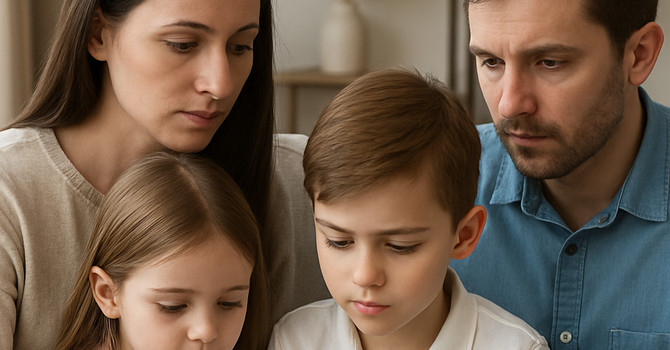
The 2024 hailstorm will be remembered for its unexpected intensity and the damage it caused to communities across several regions. While the physical destruction—smashed windows, damaged cars, and ruined crops—has been the primary focus, the emotional and mental health impacts on individuals shouldn’t be overlooked. Weather events like this can lead to stress, anxiety, and a sense of vulnerability, even when the immediate danger has passed. However, it's important to acknowledge that while the experience may have been distressing, there are effective ways to cope and heal after such events.
The Psychological Toll of Severe Weather
Hailstorms, like many other extreme weather events, can trigger a range of emotions, from shock to anxiety. While some may bounce back quickly, others may experience lingering effects, such as:
- Anxiety and Fear: The fear of recurrence or other extreme weather events can leave people on edge. This can especially impact those who already have an anxiety disorder or who felt particularly unsafe during the storm.
- Sense of Loss: Damaged homes, vehicles, and property can evoke a sense of loss, even if they can be replaced or repaired. For some, the financial strain adds to the emotional burden, leading to frustration or helplessness.
- Disruption to Routine: The storm may have led to power outages, interrupted schedules, or temporary relocations. These disruptions can throw people off balance, leading to irritability or difficulty concentrating.
However, not all responses to the storm will be severe or long-lasting. Most people will process the event, take appropriate action to repair damages, and move forward without any lasting psychological harm.
Coping with the Aftermath: Practical Steps
- Acknowledge Your Feelings: It's natural to feel a mix of emotions after a significant event. Recognizing feelings of stress, frustration, or fear is a healthy first step. Talking with friends, family, or a counsellor about your experience can help you process and normalize those emotions.
- Focus on Safety and Control: Rebuilding a sense of control is key to reducing anxiety. Taking practical steps, such as ensuring your home is secure or reviewing your insurance coverage, can help restore a sense of safety. Even small actions, like setting up emergency plans for future storms, can alleviate lingering concerns.
- Stay Connected: Connecting with neighbours and friends who went through the same experience can be comforting. Shared stories and support can reinforce the idea that you’re not alone and provide a sense of community in challenging times.
- Limit Media Exposure: After a weather event, it can be tempting to watch extensive coverage of the damage and response efforts. While staying informed is important, overexposure to disaster imagery can increase feelings of distress and anxiety. Take breaks from news and social media, especially if it becomes overwhelming.
- Engage in Self-Care: After the storm, self-care is essential. Whether enjoying a hobby, exercising, or spending time outdoors (once safe), focusing on positive, grounding activities can help re-establish emotional balance. Regular sleep, nutrition, and exercise routines can also help ease stress.
- Consider Professional Help: For some, the emotional impacts of the storm may not pass quickly. If feelings of anxiety or stress persist or worsen, seeking help from a therapist or counsellor can provide support and coping strategies. Mental health professionals are trained to help people navigate the emotional aftermath of traumatic events, even when the trauma isn’t severe.
Looking Forward to Resilience
While the 2024 hailstorm was an unexpected and challenging event, it can also be an opportunity for communities to grow stronger. Weather-related stress is a common part of life, but resilience—both individually and collectively—helps us recover and adapt. Focusing on rebuilding, finding gratitude in safety, and sharing support can help individuals and communities move forward from this event with a sense of renewal.
In the end, while nature’s unpredictability can cause stress, it also reminds us of the importance of staying grounded, supporting one another, and prioritizing our mental health in the face of challenges.
.JPEG)
.JPEG)





